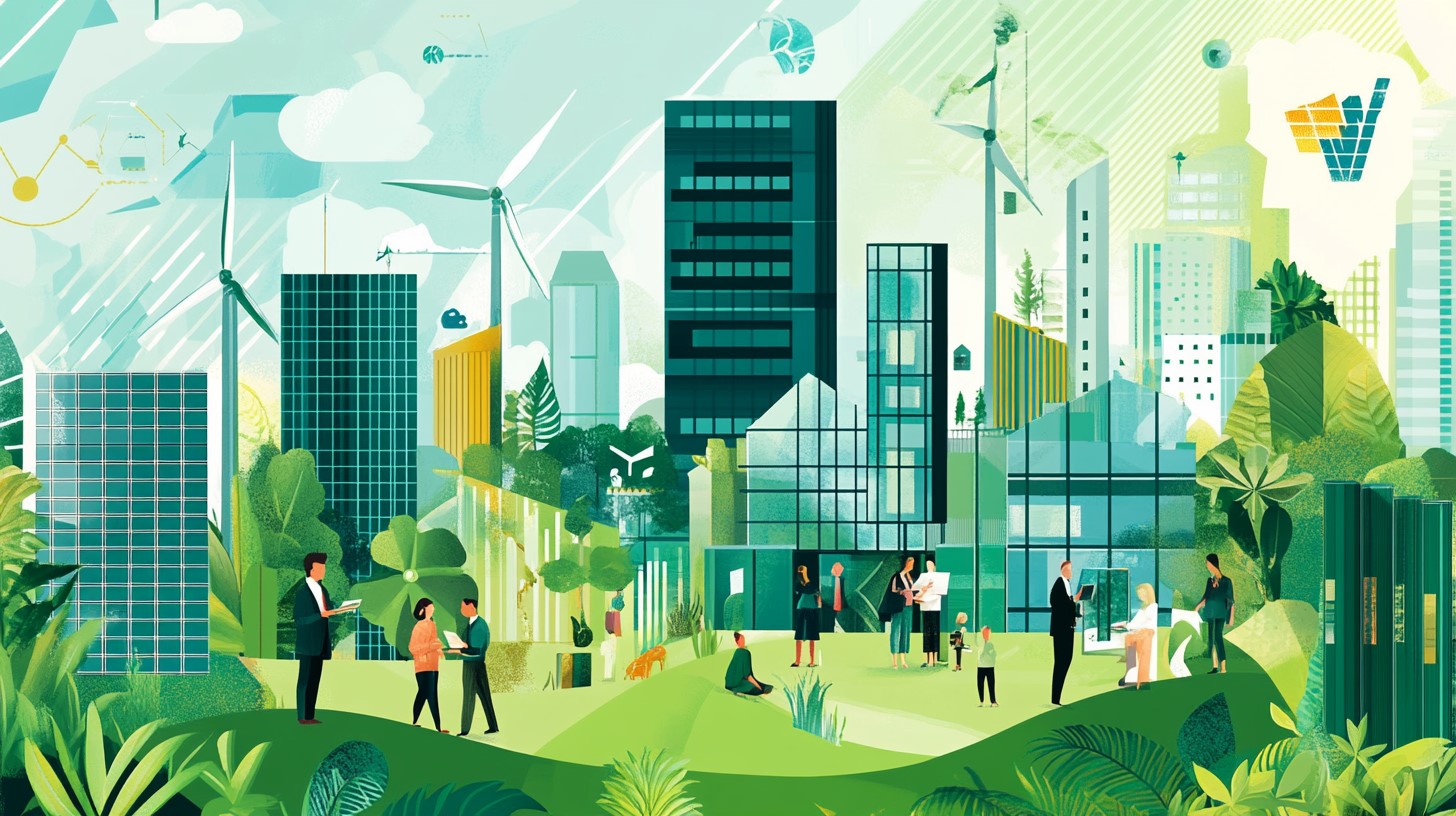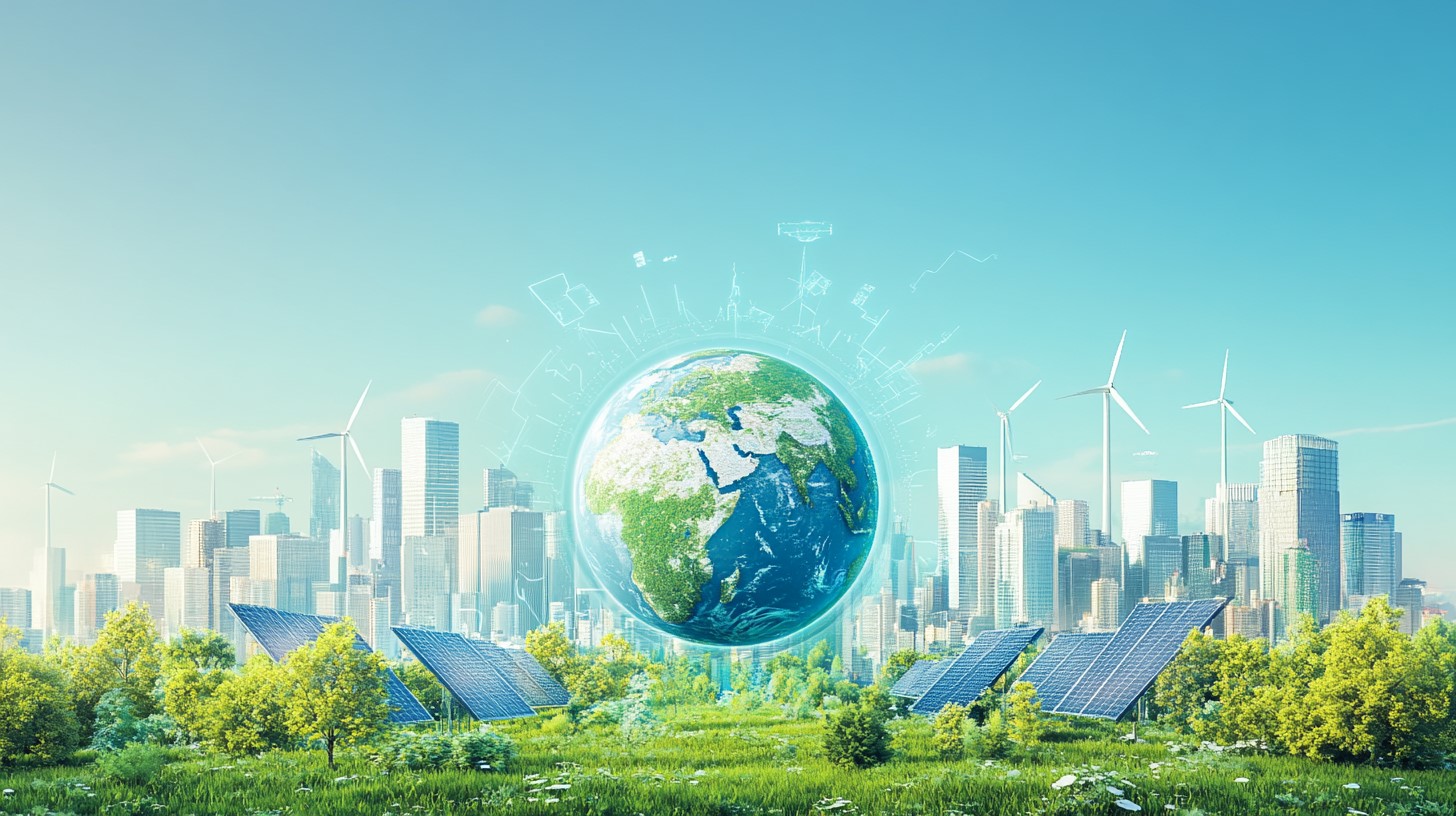Better Understanding ESG: Key Terms to Know in the World of Sustainable Business

Currently, Thailand and many countries around the world are facing environmental challenges, which significantly impact various aspects of life. Particularly in the area of Environmental concerns, issues such as air pollution from PM2.5, severe flooding, storms, and monsoons leading to flash floods and landslides have caused considerable damage. People both domestically and internationally are suffering serious consequences, affecting daily life, homes, and property.
These issues not only affect the environment but also have a chain reaction on society (Social) and corporate governance (Governance). These changes are driving organizations and businesses to adapt, create new visions, and focus on sustainable business development. Failure to adapt could leave the world in an environment overwhelmed by pollution and natural disasters, unable to support future generations.
For this reason, the concept of sustainable business development has emerged to ensure that the world can endure and move forward into the future. One of the key evaluation frameworks driving this concept is ESG, which stands for Environmental, Social, and Governance. This framework enables organizations to clearly measure and assess their performance in these crucial dimensions.
Focusing on ESG not only helps reduce environmental impact but also fosters sustainable growth for organizations and boosts confidence among stakeholders.
Additionally, there are other important environmental terms beyond ESG that are worth becoming familiar with. Understanding these terms helps provide context for the environmental challenges currently affecting every part of the world, such as:
Climate Change
Climate Change refers to long-term alterations in weather patterns, such as temperature, rainfall, and wind patterns, occurring either regionally or globally. These changes take place over several decades or longer. Currently, most climate change is driven by the rise in global average temperatures, which is largely a result of human activities—particularly the burning of fossil fuels since the Industrial Revolution, leading to the accumulation of greenhouse gases in the atmosphere.
The primary cause of current climate change is human activities, such as the burning of fossil fuels, deforestation, and certain agricultural and industrial practices, which release greenhouse gases into the atmosphere. Greenhouse gases, like CO2, act like a blanket around the Earth, absorbing some of the heat radiated by the planet after it receives energy from the sun, causing the lower atmosphere to warm up.
Currently, CO2 levels in the atmosphere have increased by about 50%, higher than at any point in the past million years. The World Health Organization (WHO) has identified climate change as the greatest threat to human health in the 21st century. Its impacts on humans include increased risks of flooding, heatwaves, food and water shortages, rising disease outbreaks, economic loss, migration, and social conflict. Additionally, the effects on ecosystems are severe, with some species of animals and plants forced to migrate or face extinction, particularly in mountainous areas, coral reefs, and polar regions.
Greenhouse Gas (GHG)
Greenhouse Gas refers to gases that have the ability to absorb infrared radiation emitted from the Earth's surface and release the heat back towards the Earth, creating the greenhouse effect, which leads to an increase in global temperatures. Key greenhouse gases include:
- Carbon Dioxide (CO2): Emitted from the burning of fossil fuels, deforestation, and industrial processes, it is the primary gas contributing to climate change.
- Methane (CH4): Produced from the decomposition of organic matter, livestock farming, rice cultivation, and coal mining, it has a high potential for causing global warming.
- Nitrous Oxide (N2O): Generated from agricultural activities, such as fertilizer use, fossil fuel combustion, and wastewater treatment.
- Fluorinated Gases: These industrial gases, including hydrofluorocarbons, perfluorocarbons, sulfur hexafluoride, and nitrogen trifluoride, are released in small quantities but have a very high global warming potential.
Therefore, reducing greenhouse gas emissions is crucial to addressing global warming and climate change. This requires cooperation from all sectors, including reducing reliance on fossil fuels, utilizing renewable energy, and preserving forests and ecosystems to help absorb greenhouse gases and maintain climate balance.
Net Zero
Net Zero refers to reducing net greenhouse gas emissions to zero by balancing the amount of greenhouse gases emitted with the amount absorbed back into nature. This approach involves limiting emissions and increasing absorption to equal levels, thereby achieving a balance in the Earth's climate.
The essence of Net Zero is to balance the amount of carbon dioxide, the primary greenhouse gas, emitted with the amount absorbed, stored, or offset through human activities. The main goal is to continuously reduce emissions to reach Carbon Neutrality and Net Zero Emissions, where the amount of greenhouse gases released by human activities is balanced by reductions and offsets in the Earth's atmosphere.
Carbon Neutrality
Carbon Neutrality refers to achieving a balance between the amount of carbon dioxide (CO2) emitted and the amount absorbed back through natural processes or technologies developed by humans. The focus of Carbon Neutrality is primarily on managing CO2, unlike Net Zero, which covers all types of greenhouse gases.
Carbon Neutrality can be achieved by reducing CO2 emissions, enhancing CO2 absorption through reforestation, or using carbon capture technology. Additionally, carbon offsetting through mechanisms like carbon credits is another method that can help organizations or countries reach this.
Renewable Energy
Renewable Energy refers to energy derived from natural sources that can be replenished quickly within a human lifespan, such as sunlight, wind, water, geothermal heat, and biomass. Renewable energy plays a crucial role in mitigating the impacts of climate change and offers a sustainable option for reducing greenhouse gas emissions.
Renewable energy is also vital for enhancing energy security, as it reduces reliance on limited fossil fuels, which are a major source of air pollution. Additionally, advancements in renewable energy technologies help create new jobs and stimulate economic growth in many countries worldwide. Nations that prioritize renewable energy use often benefit from sustainable development, both in terms of environmental protection and improving the long-term quality of life for their citizens.Biodiversity
Biodiversity refers to the variety of living organisms on Earth, including plants, animals, microorganisms, and the ecosystems they inhabit. It consists of three main levels: Genetic Diversity, Species Diversity, and Ecosystem Diversity.Biodiversity plays a crucial role in maintaining the balance of ecosystems, helping them withstand changes and recover more effectively from natural disasters. When biodiversity declines, ecosystems lose their resilience and adaptability, increasing the risk of collapse. This, in turn, affects all living organisms, including humans, who rely on natural resources such as food, water, and clean air.
Additionally, biodiversity is a valuable resource for economic and social development, contributing to sectors like medicine, agriculture, and tourism. The loss of biodiversity is not only an environmental issue but also a long-term challenge for sustainable development.
Key Takeaway
The ESG (Environmental, Social, Governance) framework is an essential concept that organizations and businesses cannot overlook if we want to ensure a sustainable future for the next generation. This framework not only helps organizations adapt to future changes but also serves as a crucial tool for building trust with investors and all stakeholders involved in the business. However, the development and implementation of the ESG framework in each business will take time and will face challenges in meeting higher standards in the future.
About Optiwise
Optiwise offers Investor Relations & ESG consulting services, corporate website design, and IR website development. We also provide advisory services for initial public offerings (IPOs) and assists in preparing disclosure documents for public companies. Additionally, our public relations efforts aim to build credibility and enhance the corporate image.
For more information about Optiwise's services, please contact us here.


